★★★½
“Hell hath no fury, like…”
 RIP James Caan. I mention his passing, because by coincidence I watched this the same day, and there are a couple of nods to Misery, one of Caan’s most famous works. There’s a character called Mrs. Wilkes, and we also get an explicitly acknowledged re-enactment of that scene. You know the one. That aside, I’d be hard pushed to call this a good film, yet I can’t deny I largely enjoyed it. It feels like an influence on Knock Knock, and if perhaps not quite coming up to that mark, it’s only marginal below, and I’m still a sucker for a full on, scenery chewing psycho bitch. In Sadie (McCord), we certainly get one.
RIP James Caan. I mention his passing, because by coincidence I watched this the same day, and there are a couple of nods to Misery, one of Caan’s most famous works. There’s a character called Mrs. Wilkes, and we also get an explicitly acknowledged re-enactment of that scene. You know the one. That aside, I’d be hard pushed to call this a good film, yet I can’t deny I largely enjoyed it. It feels like an influence on Knock Knock, and if perhaps not quite coming up to that mark, it’s only marginal below, and I’m still a sucker for a full on, scenery chewing psycho bitch. In Sadie (McCord), we certainly get one.
She and boyfriend Kevin (Zane) are starting a romantic getaway in a remote cabin. Well, that’s his plan. Sadie’s is rather different, having found incriminating text messages on his phone – worse still, to her best friend, Jennifer (Bianca). Not helping matter: Sadie recently discovered she was pregnant, and out of concern for her unborn child, stopped taking her lithium and anti-psychotic meds. Kevin wakes to find himself tied to a chair, with some very awkward explaining to do, and Jennifer is being lured to the cabin with a not-so-genuine text message saying Kevin had split up from Sadie. Adding to the mix, a scary looking convict (Drucker) has just escaped from the prison just down the road, and is headed in their direction.
There’s one scene where I fell… well, I won’t say in love with the movie, but I’d not mind a one-night stand with it. It’s when Sadie has Jennifer and Kevin tied to the bed. She drags a microwave in there too, slaps Sadie’s pet in there and demands Kevin go down on his other woman, “or I will start this microwave, and her little doggie will cook from the inside out.” No, seriously. It’s clear that this film is not to be taken seriously, and the three performances at the core are perfect for that, with Zane and Bianca dead-panning their way through the carnage, playing the straight man and woman to good effect, in contrast to McCord’s over the top, dramatic excesses. For she is going to make Kevin and Jennifer pay for their betrayal. PAY, I tell ya!
Turns out she was brought up in a mental facility and given electroshock therapy, after an incident when she was 12. She is, in essence, the poster child for “Don’t stick your dick in crazy.” Which makes it all more fun to watch her tormenting the errant couple for their sin. It all builds, inevitably, to a climax which is just as gloriously silly. I mean, who keeps a loaded spear-gun on their sideboard? Kevin, meanwhile, is moving with the agility of a gazelle, considering what happened to his ankle previously. All that said, I genuinely didn’t know who would survive at the end. I’ll say it again: I enjoyed this considerably more than I would necessarily recommend it, and the rating above reflects the former.
Dir: Mark Jones
Star: AnnaLynne McCord, Billy Zane, Viva Bianca, Doug Drucker





 When I see “Reader discretion is advised,” on an Amazon page, I tend to take it with a grain of salt. I’ve been enjoying media at the outer edges for longer than most readers here have been alive, and so am not easily shocked, disturbed or offended, to put it mildly. I’m ussure this quite managed to do any of those, but I will definitely say this: yes, reader discretion
When I see “Reader discretion is advised,” on an Amazon page, I tend to take it with a grain of salt. I’ve been enjoying media at the outer edges for longer than most readers here have been alive, and so am not easily shocked, disturbed or offended, to put it mildly. I’m ussure this quite managed to do any of those, but I will definitely say this: yes, reader discretion  Mildred Moyer (Chamberlain) has a problem, and it’s as plain as the nose on her face. Actually, it
Mildred Moyer (Chamberlain) has a problem, and it’s as plain as the nose on her face. Actually, it 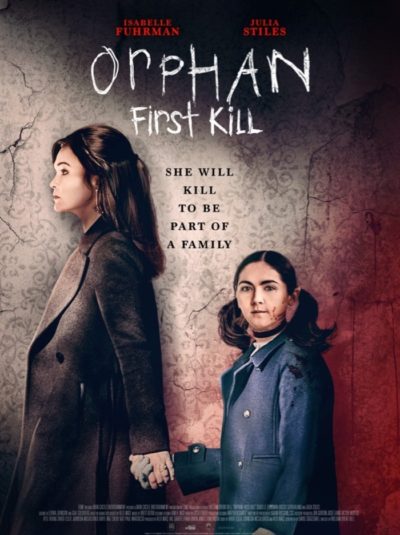 I’ve not seen the original Orphan. I suspect this does not matter very much, since what we have here is a prequel. I will admit to having been lured in by the barking mad central idea. It does justice to the lunacy, though can’t sustain itself entirely, and at least somewhat collapses under its own weight. We begin in Estonia, where Leena (Fuhrman) is a very, very angry 31-year-old. Not without justification, being trapped in a 9-year-old’s body due to a hormonal condition. Previous violence has got her committed to a secure facility, but Leena breaks out and decides to adopt the identity of Esther Albright, an American child who went missing years previously.
I’ve not seen the original Orphan. I suspect this does not matter very much, since what we have here is a prequel. I will admit to having been lured in by the barking mad central idea. It does justice to the lunacy, though can’t sustain itself entirely, and at least somewhat collapses under its own weight. We begin in Estonia, where Leena (Fuhrman) is a very, very angry 31-year-old. Not without justification, being trapped in a 9-year-old’s body due to a hormonal condition. Previous violence has got her committed to a secure facility, but Leena breaks out and decides to adopt the identity of Esther Albright, an American child who went missing years previously.  Even though I haven’t lived there since the eighties, I remain a sucker for a Scottish film. This delivers, with no shortage of rugged mountain landscapes, beautiful lochs, a ceilidh band and trees. So. Many. Trees. The foliage is understandable, because most of it takes places in the woods, where Rhona (Lyle) and her friends are looking for a cabin, deep in the wilds, which belonged to her late father. To help find it, they enlist the help of local Carla (McKeown), whom they meet down the pub when they have a pre-trip planning get-together. She initially seems fun to be with. But once they’re away from civilization, a shocking incident proves she… has issues, shall we say. And might not be the only one in the party.
Even though I haven’t lived there since the eighties, I remain a sucker for a Scottish film. This delivers, with no shortage of rugged mountain landscapes, beautiful lochs, a ceilidh band and trees. So. Many. Trees. The foliage is understandable, because most of it takes places in the woods, where Rhona (Lyle) and her friends are looking for a cabin, deep in the wilds, which belonged to her late father. To help find it, they enlist the help of local Carla (McKeown), whom they meet down the pub when they have a pre-trip planning get-together. She initially seems fun to be with. But once they’re away from civilization, a shocking incident proves she… has issues, shall we say. And might not be the only one in the party.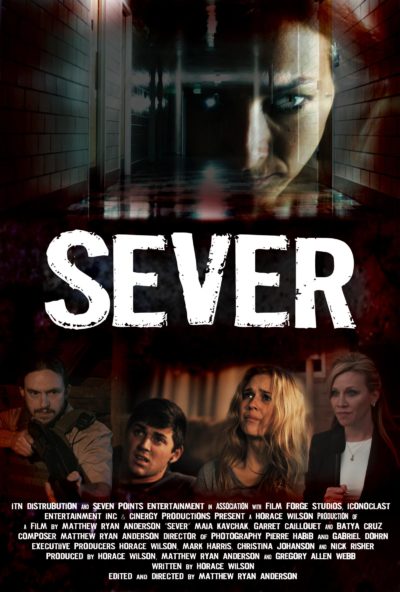 The French film
The French film 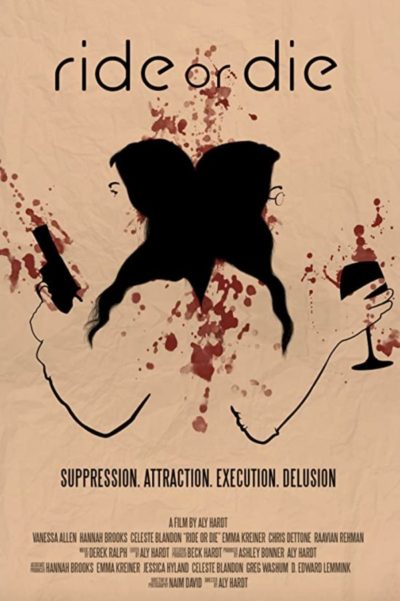 This is not to be confused with the rather higher profile i.e. it’s available on Netflix, Japanese film with the same title, made the same year, and covering a not dissimilar theme. Both are about a woman who is prepared to commit murder, in order to save their best friend from an abusive relationship. However, after the killing in question, the films take divergent paths. The Japflix version becomes a road-trip movie, with the killer and her friend going on the run. This, however, focuses heavily on the killer, whose already fragile mental state falls apart completely, after she discovers that things weren’t quite as she had been led to believe. It’s not her first time at the homicide rodeo either.
This is not to be confused with the rather higher profile i.e. it’s available on Netflix, Japanese film with the same title, made the same year, and covering a not dissimilar theme. Both are about a woman who is prepared to commit murder, in order to save their best friend from an abusive relationship. However, after the killing in question, the films take divergent paths. The Japflix version becomes a road-trip movie, with the killer and her friend going on the run. This, however, focuses heavily on the killer, whose already fragile mental state falls apart completely, after she discovers that things weren’t quite as she had been led to believe. It’s not her first time at the homicide rodeo either.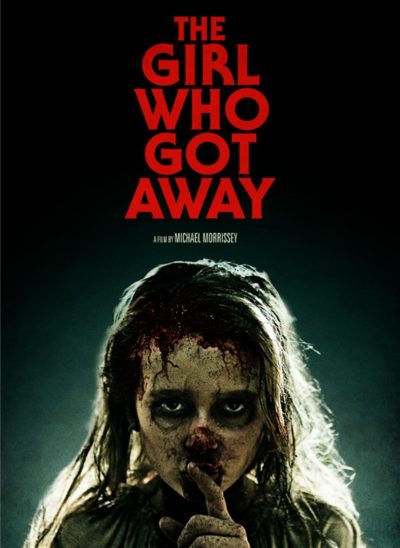 This isn’t the first movie I’ve seen, in which a woman escapes apparent death at the hands of a serial killer, only for them to track her down years later. However, the twist in the narrative here, which perhaps pushed it over the necessary boundary for inclusion on the site, is that the killer is also female. The victim is Christina Bowden (Johnson), who as a young girl was the sole survivor of Elizabeth Caulfield (Tuckerman) and her “child farm”, for want of a better phrase. Bowden has slowly put her life back together and is now a school teacher. She’s also looking to adopt another troubled teen, Lisa Spencer (McCarthy), and pay it forward. Then she gets a visit from local sheriff Jamie Nwosu (Iwuji).
This isn’t the first movie I’ve seen, in which a woman escapes apparent death at the hands of a serial killer, only for them to track her down years later. However, the twist in the narrative here, which perhaps pushed it over the necessary boundary for inclusion on the site, is that the killer is also female. The victim is Christina Bowden (Johnson), who as a young girl was the sole survivor of Elizabeth Caulfield (Tuckerman) and her “child farm”, for want of a better phrase. Bowden has slowly put her life back together and is now a school teacher. She’s also looking to adopt another troubled teen, Lisa Spencer (McCarthy), and pay it forward. Then she gets a visit from local sheriff Jamie Nwosu (Iwuji). Lou Farnt (Brayben) is stuck in her life, with a dead-end job, no apparent friends to speak of, and still living with her domineering mother (Ball). She seeks escape from one self-help guru after another, spending her money on their books, DVDs and audio-tapes, though with little or no apparent positive results. Then, she meets the unconventional Val Stone (Roe), who lives in a seaside caravan and promises to change Lou’s life forever. After some qualms, she agrees to depart with Lou, who does indeed deliver on her promise. For, as the title suggests, Val is a psychotic if smart killer, who is specifically targetting those same gurus. Either she regards them as a curse on humanity with their vapid schemes, or she simply wants to dispose of the competition.
Lou Farnt (Brayben) is stuck in her life, with a dead-end job, no apparent friends to speak of, and still living with her domineering mother (Ball). She seeks escape from one self-help guru after another, spending her money on their books, DVDs and audio-tapes, though with little or no apparent positive results. Then, she meets the unconventional Val Stone (Roe), who lives in a seaside caravan and promises to change Lou’s life forever. After some qualms, she agrees to depart with Lou, who does indeed deliver on her promise. For, as the title suggests, Val is a psychotic if smart killer, who is specifically targetting those same gurus. Either she regards them as a curse on humanity with their vapid schemes, or she simply wants to dispose of the competition.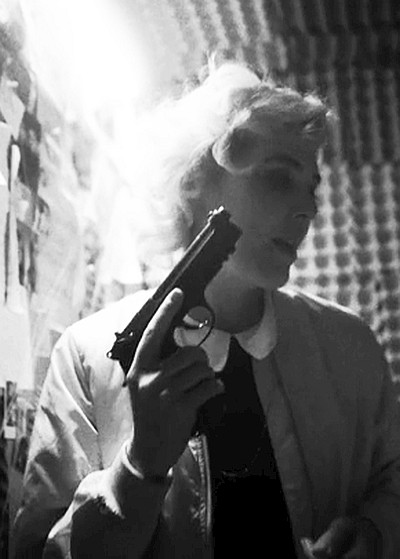
 I did not originally expect to be reviewing this here. I watched it because of the technical elements, which I’ll get to in a bit. However, by the end, it does qualify – though you certainly wouldn’t think so from how things begin. It gets underway with Lili (Puig) waiting for a date arranged over the Internet with Eduardo (Alcantara). He shows up late, very apologetic after having been mugged, and having had his phone taken, but is utterly charming, and the chemistry with Lili is immediate. They end up back at his place for dinner. But as he’s cooking on the kitchen, the tone of the evening changes, when she hears his supposedly stolen phone going off in his jacket…
I did not originally expect to be reviewing this here. I watched it because of the technical elements, which I’ll get to in a bit. However, by the end, it does qualify – though you certainly wouldn’t think so from how things begin. It gets underway with Lili (Puig) waiting for a date arranged over the Internet with Eduardo (Alcantara). He shows up late, very apologetic after having been mugged, and having had his phone taken, but is utterly charming, and the chemistry with Lili is immediate. They end up back at his place for dinner. But as he’s cooking on the kitchen, the tone of the evening changes, when she hears his supposedly stolen phone going off in his jacket…